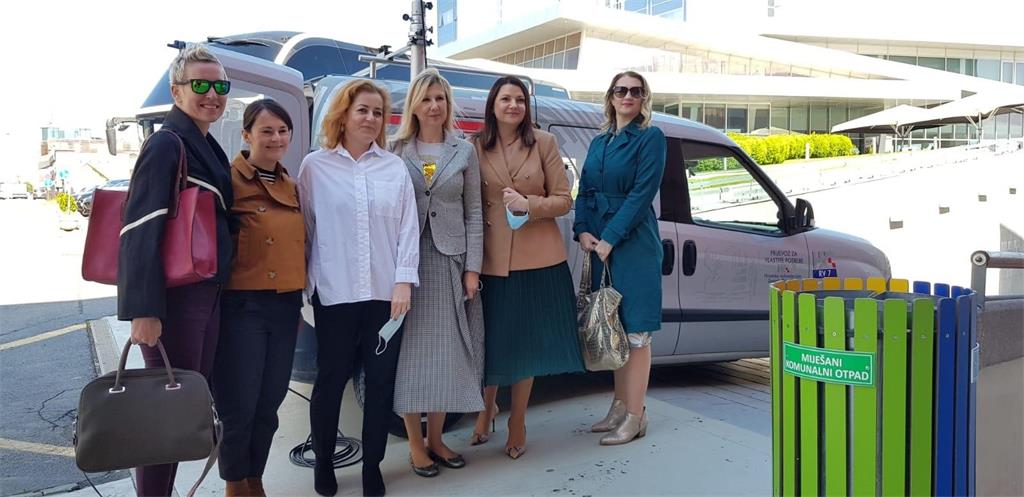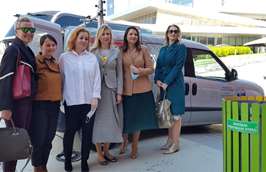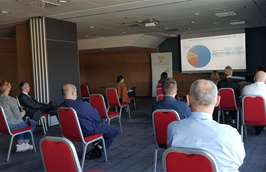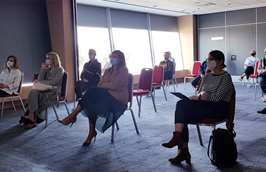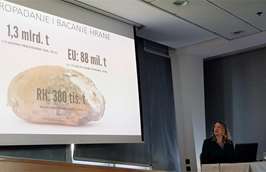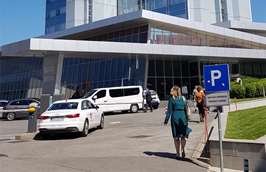02.06.2021.
In the Osijek Hotel, the representatives of the Environmental Protection and Energy Efficiency Fund held a workshop on reducing food waste for the hotel staff.The Environmental Protection and Energy Efficiency Fund is implementing a pilot project “Reduce Food Waste #cookforyourguests”, which includes the hotels in Osijek and Pula. The project is aimed at efficient application of the measures to reduce food waste in the hospitality and catering sector, primarily in hotels, and at the separate collection and disposal of the generated waste.
“We at the Fund have been dealing with the waste management for years. Croatia has certain goals to achieve pursuant to the EU and national legislation, stipulating that by 2022 40% of the generated biowaste has to be collected separately. Today, one Croatian citizen produces around 444 kg of municipal waste per year, which is a cause for concern because it indicates that we really have become a consumerist society. What we are trying to do is find a solution how to reduce biowaste, large quantities of which end up on landfills, and this is something which is essential. The goal of this project is to reduce the quantity of biowaste as much as possible ,” said the head of the EU Funds Sector at the Fund, Maja Feketić.
In today’s workshop at the Osijek Hotel, the hotel staff were shown some practical methods that could reduce food waste. “We want to encourage hotels and show them the examples of some new work methods and processes, so that by taking baby steps we could achieve the results and goals we mentioned. In essence, this project is not only environmental, but also economic; we want it to be beneficial for the hotels, to reduce their costs of food waste disposal. We chose Hotel Osijek because they are already making efforts to reduce food waste, and they are keen to adopt new methods to achieve the best possible results,” explained the project coordinator Vesna Cetin Krnjević, adding that it was extremely important to educate the hotel staff about the methods for measuring waste quantities and disposing of it in the manner required by the European Union.
The workshop for the hotel staff was held by an expert in the field of preventing food waste Branka Ilakovac, PhD, who presented a number of good practice examples and analyses of different hotel chains that were operating on this principle. “The key strategies for reducing food waste are aimed at measuring food waste, efforts by the hotel staff, reconsidering the offers, reducing excess food preparation, and repurposing of the surplus,” pointed out Mrs Ilakovac.
The Osijek Hotel manager, Sandra Đurđević, and the hotel staff have chosen the methods that will make the hotel greener and achieve even better results, pointing out that the goal was to contribute to a better and healthier environment, which also coincides with the hotel’s business policy.
This pilot project is implemented by the Fund together with the Ministry of Economy and Sustainable Development and the Ministry of Tourism and Sports. It marks the starting point for collecting the information and data that will help develop the most acceptable methods, so that next year an extensive project at national level could be prepared, which would include the kitchens in all kinds of institutions, not only hotels and restaurants.
